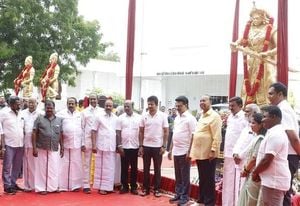When one thinks of Sega, nostalgia often kicks in, evoking memories of the golden age of gaming with iconic consoles and memorable characters, culminating with the much-loved Dreamcast. Yet, as of now, Sega finds itself embroiled in controversies surrounding the legacy it left behind — and the future of its brand identity.
The Dreamcast, which debuted in 1998, was somewhat of a revolutionary console, offering built-in online capabilities and exclusive titles, such as Shenmue and Sonic Adventure 2. But even with such innovative features, it struggled to carve out its place among the giants like Sony's PlayStation and Nintendo's offerings. Upon its launch, it was the first home console to feature online gameplay, yet the timing was off, as broadband hadn’t yet become commonplace, limiting its appeal. Coupled with the rocky reputation following the failures of the Sega Saturn and the short-lived Sega 32X, many gamers were hesitant to invest their hard-earned money.
Fast forward to the present day, and Sega is again making headlines, but this time with legal actions targeted at projects trying to revive its classic essence. One such project is the SuperSega FPGA, which aims to recreate and play games from cherished Sega systems like the SG-1000, Master System, Mega Drive, Saturn, and Dreamcast. Developer Alejandro Martín, who leads the SuperSega team, recently received communication from Sega, requesting the project be halted altogether. Sega's request isn't just to stop production but extends to the destruction of all prototypes and units produced under the name.
Martín and his team had previously hoped Sega wouldn’t intervene, as they believed the project did not infringe on trademark rights. They had opened discussions with Sega about potential licensing, but those talks didn't seem to have progressed favorably.
Currently, Martín is weighing his options. He mentioned to various sources, “A name change will be considered, but production will not be stopped” if Sega doesn’t agree to cover costs incurred and what consumers have already paid. The determination to proceed with the project is palpable, as Martín intends to launch a Kickstarter campaign to help fund its continuation.
The potential for SuperSega to succeed rests heavily on the willingness of consumers to support it. Some gamers express skepticism about the viability of the project and question whether it holds any valid promise, especially with Sega looming over it.
Historically, Sega’s ability to manage its legacy hasn't been perfect, leading fan communities to wonder about the possibilities of ownership and nostalgia. The Sega Realm, once the territory of quirky yet engaging titles like Crazy Taxi and Jet Set Radio, seems to clash with the modern corporate strategies aimed at controlling the narrative surrounding those classics.
Much of Sega's history is rooted not just in creation but also in contesting various external and internal pressures. The company experienced significant shifts: from being the innovator with groundbreaking technologies to facing upstart competitors and grappling with public perception. These shifts inevitably contribute to the sentiment directed toward the SuperSega initiative.
Despite the challenges, Martín remains upbeat about the endeavors. With no shortage of avid fans and gaming enthusiasts, the question remains: will Sega’s push against SuperSega help endear or demonize it among its nostalgic gamer base? Will communities spring to SuperSega’s defense or chastise it for dragging the company’s name through litigation?
With Sega's recent actions reminding everyone of its authoritative hold over its intellectual properties, industry observers are left to ponder the ultimate fates of the SuperSega project and other similar initiatives. The overall sentiment is reminiscent of past tensions seen with other creators of retro-tech, igniting fierce discussions around copyright, nostalgia, and gaming culture.
Of course, many are hoping all these discussions will yield favorable conclusions, ones where creativity can flourish without legal retribution. After all, the central pillar of gaming has always been the joy of play, sharing, and reliving those cherished memories of past consoles. Whether Sega recognizes this sentiment as it navigates these waters will play out over the coming months.
Meanwhile, fans of Sega's older titles hope for conversations about how both Sega and their new projects can coexist, perhaps even enriching each other's experience. Whether through modified agreements or collaborative efforts, the conversation on Sega's legacy—its decisions and whose stories to tell—carries significant weight as time goes on.
These developments occur alongside heightened excitement as 2024 ushers new dynamics, sparking curiosity about Sega's future moves amid its historic legacy. Will they continue to impose their protective stance over projects meant to celebrate their gaming history or will they find opportunities to work collaboratively, enhancing access to vintage titles, and drawing on their rich heritage?
Reflecting on the past and setting ambitions for tomorrow are tightly intertwined as Sega fans engage with the company's next chapter. Time will tell not only how SuperSega will proceed but also what directions Sega may take as it works to retain relevance and respect amid advancing technologies and changing consumer interest.
For now, among the world of increasingly expensive merchandise and gaming nostalgia, the dreams and ambitions surrounding Sega can only hope for brighter days to come as decisions form to honor the past without stifling the future.



